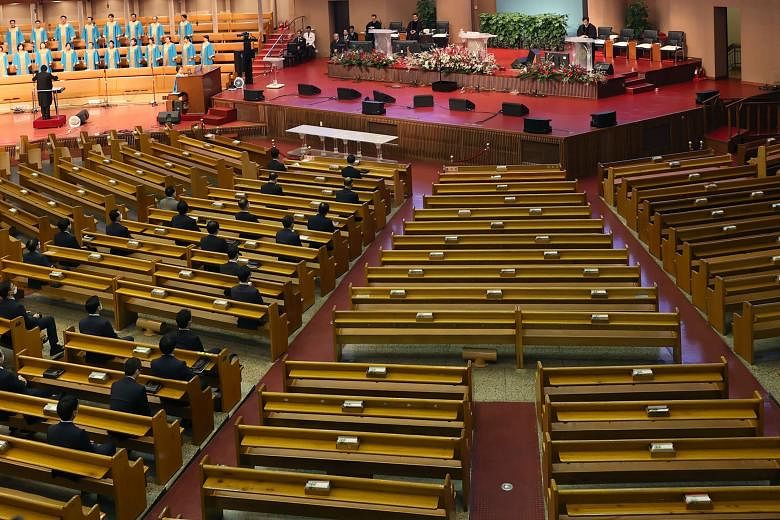SINGAPORE - Public events across the world are being curbed to limit the spread of the coronavirus, which causes Covid-19 disease, as the number of infections rise to more than 88,000 globally.
But even though the World Health Organisation (WHO) has urged countries to make containment a top priority, it has also made clear that there is no one-size-fits-all strategy to tackling the outbreak.
WHO guidelines on mass gatherings say event organisers should assess the risks in consultation with local public health authorities.
"National authorities should make proportional, evidence-based decisions about these types of issues based on their assessed risk of holding the event in their country. Similarly, companies and other organisations are at liberty to make their own decisions according to their specific circumstances," said WHO spokesman Tarik Jasarevic in an e-mailed response to questions from The Straits Times.
"Local health authorities should be involved in these processes so that if a case occurs during the gathering, it can be taken care of immediately and effectively," he added.
The WHO's interim guidance on mass gatherings issued on Feb 14 calls on event organisers to consider the general features of the virus - including its transmission method, the future likely spread of the epidemic, the clinical severity of the disease as well as treatment options - alongside the specific features of the event.
These include the crowd density at the event, the nature of contact between participants - whether it is a concert or religious event and whether it will be held indoors or outdoors - as well as whether it will be attended by registered participants.
Other factors to consider include the profession of the participants and their possible previous exposure to the virus, the number of participants coming from areas affected within 14 days prior to the event, the age of those attending and their mode of travel.
Several major gatherings around the world have already been cancelled or postponed amid the disease outbreak.
Last week, China postponed its annual parliamentary congress, which was due to begin on Thursday (March 5). China, where the virus is believed to have originated in late December, launched unprecedented lockdown measures around the country in January that limited travel, a move the WHO said has helped to slow the spread of the virus.
Saudi Arabia has also decided to block Muslims from arriving for the minor pilgrimage for now.
The Tokyo Olympic Games, which is due to be held from July 24 to Aug 9, could be postponed, Japan's Olympic minister Seiko Hashimoto has said. But on Wednesday, Chief Cabinet Secretary Yoshihide Suga said the country is planning to host the Games as planned. At least six people have died from the disease in Japan.
A number of high-profile sporting events have already been cancelled or postponed, including the World Athletics Indoor Athletics Championships.
France, which has recorded three deaths from the virus, last Saturday announced a temporary ban on indoor gatherings with more than 5,000 people.
Switzerland, which has seen at least 30 cases of the virus, last Friday suspended all events with more than 1,000 participants until March 15.
Iran, which has seen the highest number of deaths outside China, with at last 66 dead, last week called off Friday prayers in 23 of the 31 provinces in the largely Muslim country, including in its capital, Teheran.
South Korea, which has the highest tally of cases outside China, has already postponed or cancelled some concerts and sports events. Last weekend, churches there held online services instead of their usual Sunday gatherings.
In Singapore, event organisers have been advised to cancel or defer non-essential large-scale events. Those that choose to continue should take additional precautions such as carrying out temperature screening.
For organisers that are looking to proceed with their events, the WHO advises them to consider measures to reduce the spread of infections such as by having staggered arrivals and minimising congregation at sanitary stations and food and water distribution areas. Organisers are also advised to disseminate public health messages about the virus and detect and monitor infections related to the event.
"It's important to remember there is never zero risk with any mass gathering," said Mr Jasarevic. "Event organisers have to put in place a risk management strategy accordingly, so that risks can be managed based on the setting, the type of the event, the type of participants, the location and duration et cetera. Many of the risks can be appropriately managed and even reduced through simple measures," he added.











